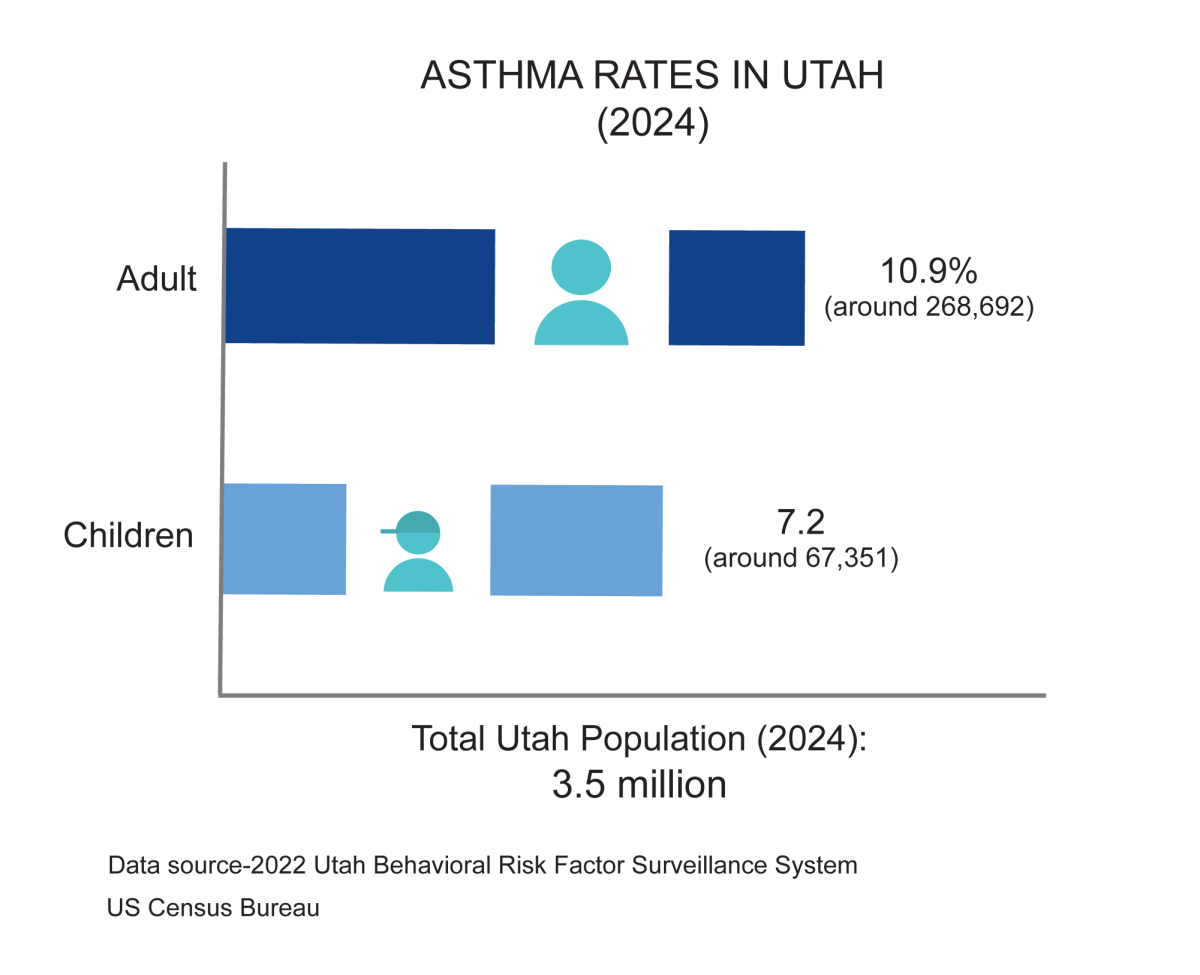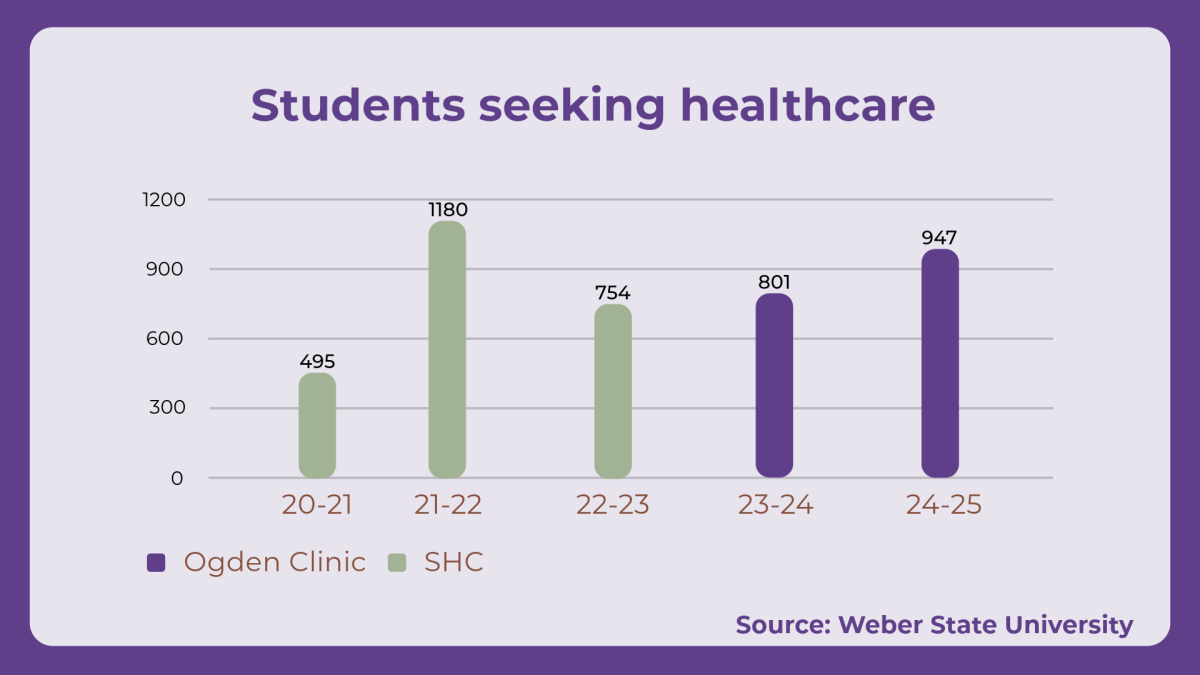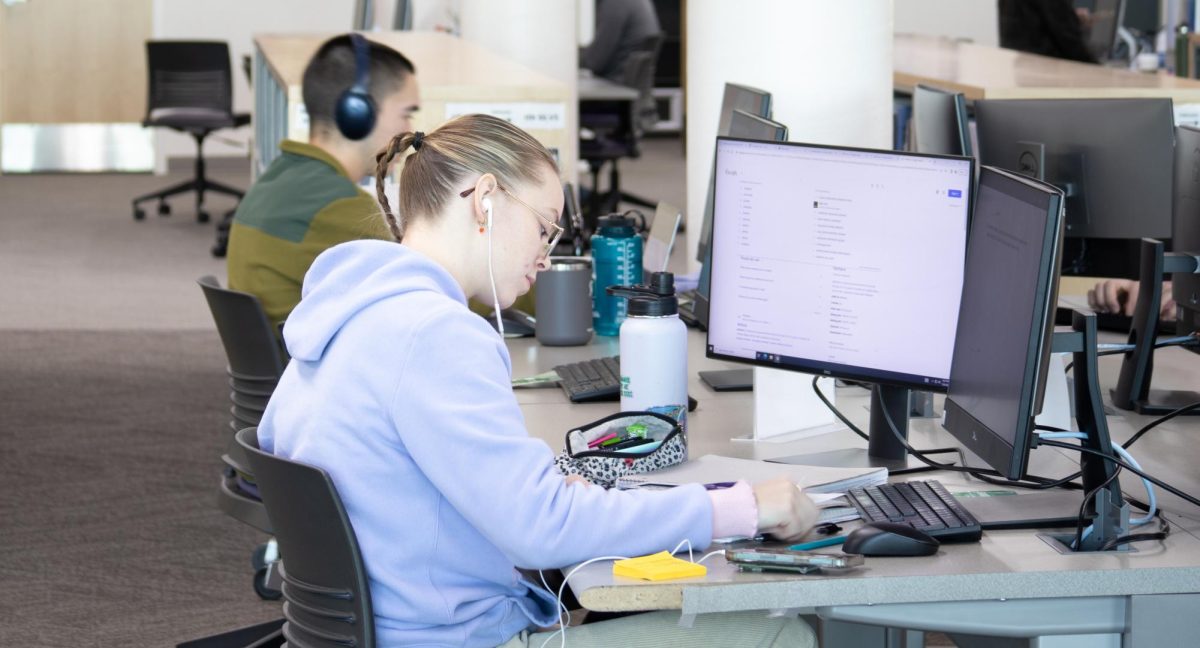[media-credit id=13 align=”alignright” width=”200″] [/media-credit]The national average for acceptance into medical school is roughly 45 percent. Those odds can be discouraging, but Weber State University’s acceptance rates are consistently above the national average. In fact, two years ago, 90 percent of WSU students who applied to medical school got accepted. The pre-medical adviser is integral to this kind of success. Barbara Trask, WSU pre-med adviser, said she isn’t there to filter people out or discourage them from a career in the medical field.
[/media-credit]The national average for acceptance into medical school is roughly 45 percent. Those odds can be discouraging, but Weber State University’s acceptance rates are consistently above the national average. In fact, two years ago, 90 percent of WSU students who applied to medical school got accepted. The pre-medical adviser is integral to this kind of success. Barbara Trask, WSU pre-med adviser, said she isn’t there to filter people out or discourage them from a career in the medical field.
“If it’s something that you want to do, there is a way to do it,” Trask said. “We just have to work out what is the best way. . . . There are a lot of students who don’t know about the pre-med adviser, or what a pre-med adviser can do for them throughout their education. Some people come at the very end while they’re getting ready to apply, and sometimes that’s a little late. And then there are other people who have this dream of ‘I want to be a doctor but I’m never going to cut it’ because of their GPA or whatever. They just don’t think it’s going to happen. And at the end of their education they’ll come to me and say, ‘Is this even a possibility?’ And it is, but they’re delayed. If they had come to me a little bit earlier, they might have been able to pick up some things along the way.”
There are many factors that can influence the success of a pre-medical student’s application to medical school, but, according to Trask, a student doesn’t have to be a genius to be a doctor. According to the American Medical Association, succeeding in medicine requires students to be motivated, intelligent and well-rounded with good communication skills, in addition to a relatively high grade point average.
“Anybody can do it — as long as you’re of average intelligence or better, you can be a doctor,” Trask said. “It’s not the smartest people that make the best doctors; it’s the most persistent, the most dedicated, and the most caring people that make the best doctors.”
Trask insisted that any major could qualify students for medical school. It is not necessary for students interested in a medical career to major in the sciences.
“There are obviously some popular majors; the majority of our applicants major in zoology, microbiology, medical lab sciences and BIS, but just because the majority of students do that doesn’t mean that you have to select it,” Trask said. “Any major across campus — and I would say psychology, chemistry, business and foreign language are also popular — and it could be anything. Any major is OK. I don’t want students to think that they have to major in the college of science just because it’s popular to do so.”
Although GPA is seemingly important for acceptance into medical school, according to Trask, GPA is becoming less important, being traded for a broader, holistic view of the applicant.
“Back in the day, GPA and MCAT score were pretty much what most allopathic medical training programs would be looking at,” Trask said. “So if you didn’t make it over those academic bars, they weren’t going to even look at you. There are still some training programs that do that, but the vast majority of both allopathic and osteopathic training programs are going to be doing what they term holistic review of applicants, and that holistic review does in fact include academic criteria like the GPA and the MCAT, but it does include other things as well, including those extracurriculars like community service, patient exposure, physician-shadowing, research experiences — all of those things that demonstrate that you’re a caring individual, that you’re knowledgeable about the career you’re accepting, that you’re a curious individual, showing that you can take what you learn in the classroom and actually apply it; those are becoming more important.”
Although the career path toward a medical degree can be difficult, the resources are there for students to make their career dreams come true.
“I think if you’re considering it, it’s a noble career; it’s a great career in which you have the opportunity for continued learning,” Trask said. “When students come to me and they want to know ‘how long will it take me?’ or ‘when will I be done with school?’, being a physician is probably not the right answer — because there is no end, there is no finish line. You’re accepting a career in which you’re going to have to continue learning, because new scientific information is always going to be causing the field to change. So you have to be the type of person that wants to keep learning for the rest of your life. It’s the type of career that’s challenging, but very rewarding.”



















